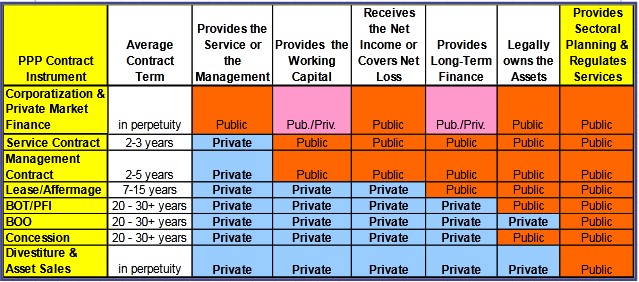Development of Waqf Objects through Public Private Partnership (PPP) as a Means of Infrastructure Development for the Public Interest
DOI:
https://doi.org/10.59698/quru.v1i1.116Keywords:
Waqf; Immovable Objects; Public Private Partnership (PPP); Development for the Public InterestAbstract
Waqf as an amaliyah service should be an instrument to improve the welfare of the wider community. Various waqf cases in the Religious Courts can be a reflection for the future so that the objects that have been pledged can be fit for their intended purpose. With a public private partnership (PPP) scheme, existing waqf objects will be more optimally developed. To follow up on efforts to develop waqf objects, research was carried out using a type of normative legal research that relies on related principles and norms. The legal materials used are primary legal materials in the form of decisions and statutory regulations related to waqf and PPP. Meanwhile, the secondary legal materials used are journals and books on waqf law, PPP, and land acquisition for development in the public interest. The results of the research found that so far efforts to develop waqf objects are still very minimal, on the other hand, there are also government provisions through Law 2/2012 PTBPUKU which require citizens to surrender their land rights if they are affected by construction for the public interest. This provision is in line with Law 41/2004 concerning Waqf which requires that waqf objects can be used for public purposes as long as they obtain permission from the Minister through the waqf body. Apart from that, in the context of development for the public interest and development of waqf objects, the government often uses the PPP model to financially optimize waqf objects. The most ideal scheme to use in increasing waqf objects can be carried out in the form of PPP in the form of BOT, BOOT or ROOT. Its use and designation are adjusted to the permits and designation of the waqf pledge as stated in statutory regulations and sharia principles.
References
Abdoeh, Nor Mohammad. “Tinjauan Filosofis Terhadap Undang-Undang Nomor 41 Tahun 2004 Tentang Wakaf.” Iqtisad: Reconstruction of Justice and Welfare for Indonesia 7, no. 1 (2020): h.15.
Amaliah, Siti Nurul, and E mulya Syamsul. “RUKUN WAKAF DALAM KEABSAHAN WAKAF MENURUT UU NO 41 TAHUN 2004 TENTANG WAKAF.” Al-Akhbar: Jurnal Ilmiah Keislaman 8, no. 2 (2022): 64–70.
Bank, World. “Public-Private Infrastructure Advisory Facility,” 2014.
Edriyanto, Bambang. “Status Tanah Wakaf Yang Belum Terdaftar Bila Terjadi Gugatan Ahli Waris (Studi Di Kecamatan Ujung Batu Kabupaten Rokan Hulu).” Premise Law Journal 14 (2015): 14138.
Felsinger, Klaus, Juan Miranda, Heather Skilling, Kathleen Booth, Elsie Areneta, Maria Anna Birken, Sally Pedersen, S Edwards, I Woodward, and V Herrera. “Public-Private Partnership Handbook Acknowledgments.” Asian Development Bank, 2008, 100.
Lay, Maxwell G. “Public Infrastructure: An Historical Perspective.” Road & Transport Research: A Journal of Australian and New Zealand Research and Practice 22, no. 2 (2013): 62–68.
Maulani, Nina. “SYARAT WAKAF DALAM KAJIAN FIQIH ISLAM DAN UNDANG UNDANG RI NO 41 TAHUN 2004 TENTANG WAKAF: Syarat Wakaf, UUD No 41 Tahun 2004 Tentang Wakaf.” Al-Akhbar: Jurnal Ilmiah Keislaman 8, no. 2 (2022): 79–88.
Noho, Muhammad Dzikirullah H. “Politik Hukum Pengaturan Build Operate Transfer (BOT) Di Indonesia: Di Masa Lalu, Saat Ini, Dan Akan Datang.” Jurnal Hukum Media Bhakti, 2019.
Noho, Muhammad Dzikirullah H, and Anggita Doramia Lumbanraja. “Perlindungan Hukum Public Private Partnership (PPP) Melalui Lembaga Penyelesaian Perselisihan Independen Di Indonesia.” CREPIDO 5, no. 2 (2023): 146–60.
Noho, Muhammad Dzikirullah H, Budi Santoso, Paramita Prananingtyas, and Trinah Asi Islami. “ANALISIS PERBANDINGAN PENGATURAN HUKUM BUILD OPERATE TRANSFER (BOT) DI INDONESIA DENGAN NEGARA-NEGARA ASEAN.” Jurnal USM Law Review 4, no. 2 (2021): 728–42.
Rouhani, Omid M, Richard R Geddes, Wooseok Do, H Oliver Gao, and Arash Beheshtian. “Revenue-Risk-Sharing Approaches for Public-Private Partnership Provision of Highway Facilities.” Case Studies on Transport Policy 6, no. 4 (2018): 439–48.
Sesse, Muh Sudirman. “Wakaf Dalam Perspektif Fikhi Dan Hukum Nasional.” DIKTUM: Jurnal Syariah Dan Hukum 8, no. 2 (2010): 143–60.
Zuhirsyan, Muhammad. “Penerapan Akuntabilitas Dan Maslahat Dalam Perspektif Hukum Wakaf.” Jurnal Hukum Kaidah: Media Komunikasi Dan Informasi Hukum Dan Masyarakat 19, no. 3 (2020): 426–37.
Undang-Undang Nomor 5 Tahun 1960 tentang Peraturan Dasar Pokok-Pokok Agraria.
Undang-Undang No. 2 Tahun 2012 Tentang Pengadaan Tanah Bagi Pembangunan Untuk Kepentingan Umum
Undang-Undang No. 41 Tahun 2004 Tentang Wakaf
Peraturan Pemerintah No. 25 Tahun 2018 Tentang Perubahan Atas Peraturan Pemerintah No. 42 Tahun 2006 Tentang Pelaksanaan Undang-Undang No. 41 Tahun 2004 Tentang Wakaf
Peraturan Presiden Nomor 67 Tahun 2005 tentang Kerjasama Pemerintah dengan Badan Usaha Dalam Penyediaan Infrastruktur
Peraturan Presiden Nomor 38 Tahun 2015 tentang kerjasama pemerintah dengan badan usaha dalam penyediaan infrastruktur
Instruksi Presiden No. 1 Tahun 1991 Tentang Kompilasi Hukum Islam (KHI)
Keputusan Menteri Keuangan Nomor 248/KMK.04/1995 tentang Perlakuan Pajak Penghasilan terhadap Pihak-pihak yang Melakukan Kerjasama dalam Bentuk Perjanjian Bangun Guna Serah (Build Operate and Transfer).
Keputusan Presiden Republik Indonesia Nomor 7 Tahun 1998 tentang Kerjasama Pemerintah Dan Badan Usaha Swasta Dalam Pembangunan dan atau Pengelolaan Infrastruktur

Downloads
Published
How to Cite
Issue
Section
License
Copyright (c) 2023 Muhammad Dzikirullah H. Noho

This work is licensed under a Creative Commons Attribution-NonCommercial-ShareAlike 4.0 International License.
Quru': Journal of Family Law and Culture





.png)







